MS-ETS1-4
Develop a model to generate data for iterative testing and modification of a proposed object, tool, or process such that an optimal design can be achieved.
-
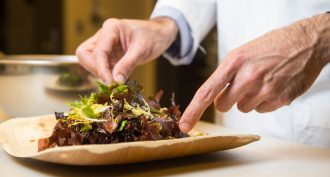 Health & Medicine
Health & MedicineCool Jobs: Finding foods for the future
What's for dinner... tomorrow? Scientists are developing new foods to meet the demands of the growing population in a changing world.
-
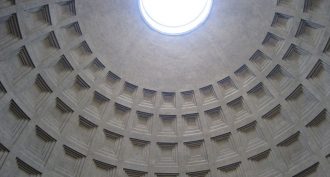 Computing
ComputingThese young scientists are passionate about tech and math
The 2015 Broadcom MASTERS International delegates show why math and computer skills are key to the success of science-fair projects.
-
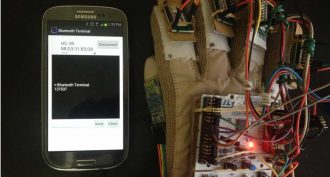 Computing
ComputingComputing: Swapping a glove for the keyboard
Sensor-studded gloves, designed by a Texas teen, might someday serve as a virtual keyboard or musical instrument — or even help interpret sign language.
By Sid Perkins -
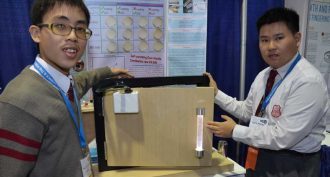 Tech
TechThis door handle kills germs
A high-tech door handle may cut down on disease transmission, say its teen developers. The system is powered by simply opening and closing the door.
By Sid Perkins -
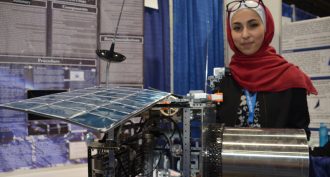 Space
SpaceCollecting trash in space
Space junk threatens satellites that cost millions of dollars. But one teen has come up with an idea to collect and dispose of that orbiting trash.
By Sid Perkins -
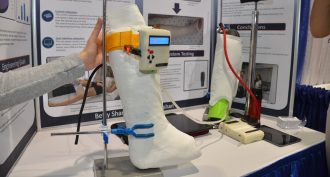 Health & Medicine
Health & MedicineBones: Custom cushioning helps heal a bad break
If the stiff casts encasing broken limbs included an inflatable air bladder instead of a soft lining, costly and painful complications experienced by some patients during healing might be avoided, two teens reported at the 2015 Intel ISEF competition.
By Sid Perkins -
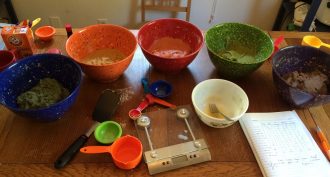
Cookie Science 16: If I had to do it all again
My second cookie experiment didn’t turn out quite like I planned. Here’s what I would do differently, knowing what I do now.
-
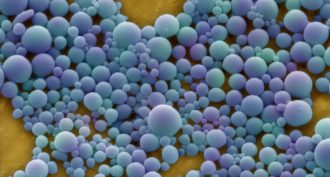 Health & Medicine
Health & MedicineInjected nanoparticles treat internal wounds
Soldiers wounded in a bombing could be treated with a shot of specially designed nanoparticles that stop bleeding and inflammation in the lungs.
-
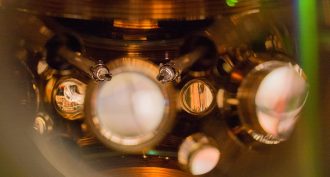 Physics
PhysicsNews Brief: As timely as it gets
A newly modified atomic clock won’t lose or gain a second for 15 billion years. This timepiece is about three times more precise than an earlier version.
By Andrew Grant -
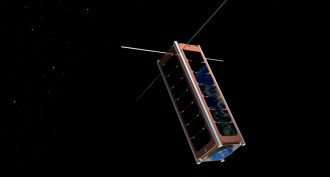 Space
SpaceMini-sats: The trick to spying Earth-bound asteroids?
NASA is supposed to begin nonstop screening by 2020 for all asteroids that could pose a threat to Earth. Some astronomers now think the only way to affordably meet that deadline is by using mini-satellites
-
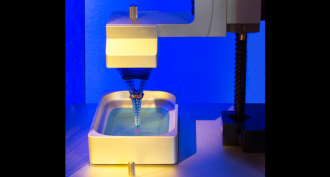 Chemistry
ChemistryGoopy tech leaves older 3-D printing in its wake
A new way of 3-D printing combines light and oxygen to create solid objects from liquid resin. The method quickly creates detailed objects.
By Beth Mole -
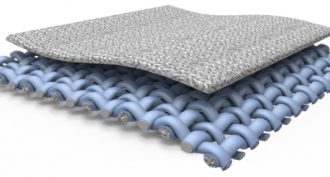 Tech
Tech‘Smart’ clothes generate electricity
Scientists in South Korea have developed a fabric that captures energy from its wearer’s motions and turns it into electricity.